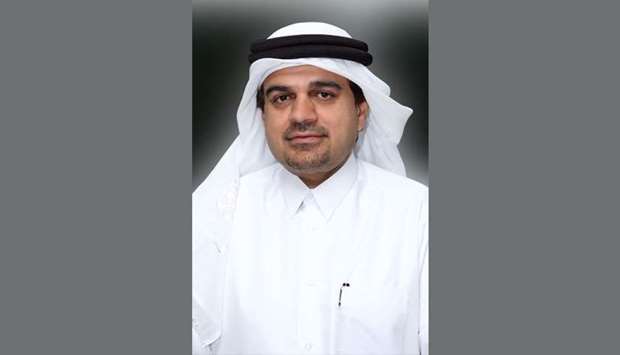Qatar’s banking sector is now very stable and on a solid footing thanks to QCB’s prudent policies, said prominent Qatari banker and CEO of Qatar International Islamic Bank Dr Abdulbasit Ahmad al-Shaibei.
“Whenever the dollar rates go up, the QCB will have to consider increasing their rates, because the riyal is pegged to the dollar. Qatar Central Bank is ensuring there is no big gap between dollar and riyal rates and is properly tracking the dollar rates,” Dr al-Shaibei said in an interview with Gulf Times.
Dr al-Shaibei said a careful look at the balance sheet of Qatari banks will show that the costs of the funds are going up because of the increasing dollar rates.
“But in Qatar, QCB is managing the situation very well. And that’s why we find stability in our banking market,” al-Shaibei said.
Overall, he said: “There is an increasing confidence in our economy, because of our stability, and the well-managed economy. Post-blockade, the Qatar Central Bank has taken several measures to ensure that our banking sector is not adversely affected. Collectively, various ministries, departments and government agencies worked together to ensure that our economy functions well.”
In its latest report the International Monetary Fund (IMF) said Qatar’s banking sector remains healthy overall, reflecting high asset quality and strong capitalisation.
The IMF said at end-September 2017, banks had high capitalisation (CAR of 15.4%), high profitability despite recent moderation (return on assets of 1.6%), low NPLs (1.5%) and reasonable provisioning ratio of NPLs (85%).
On Qatar’s low non-performing loans to total loans ratio, al-Shaibei said: “The credit goes to the Qatar Central Bank. They have always been a bit firm on those things…and never relax when it comes to the provisioning of NPLs.”
Asked whether Qatari banks are highly averse to risks, especially in real estate, the QIIB chief executive officer said, “Qatari banks have been a major player in the development of our real estate. The rules and conditions set by the QCB in respect of real estate financing are meant to safeguard the interests of both banks and the developers.”
He said: “In many places including Europe, banks are now less aggressive when it comes to real estate. Remember, the 2008 financial crisis started with real estate.”
Referring to the recent export – import figures released by the Ministry of Development Planning & Statistics, he said: “These show our economy is dynamic; different sectors are positively responding to the national economy.”
On logistics, he said the government ensured that the supply channels remained intact.
“Post-blockade, we were able to make alternative arrangements in no time. The country was so quick to diversify its import and export businesses; and sourced essential commodities from other countries. Hamad Port, Hamad International Airport and Qatar Airways have all done a remarkable job on this,” al-Shaibei noted.
The QIIB chief executive officer said “since infrastructure is an ongoing business, the Qatari banks need to be prepared all the time. We need to be very well capitalised to meet our obligations to the national economy. Our growth must also align with that of the national economy.”

QIIB chief executive officer Dr Abdulbasit Ahmad al-Shaibei

